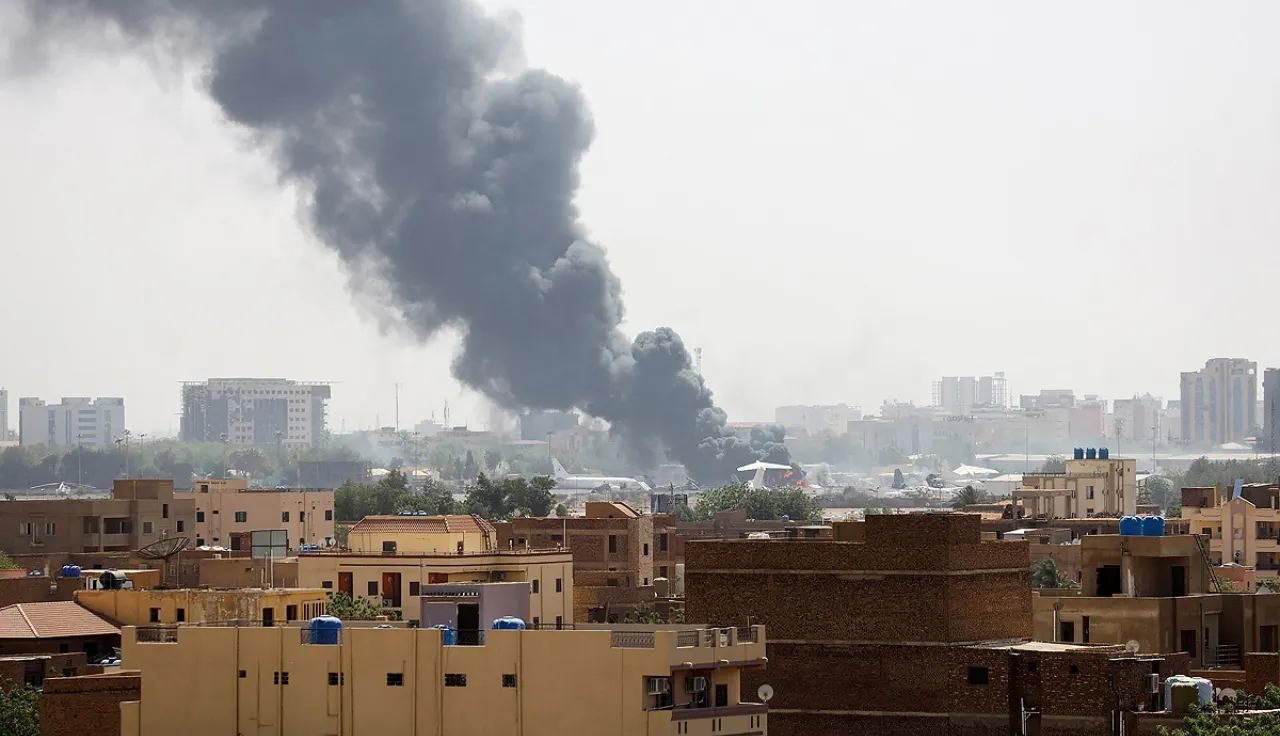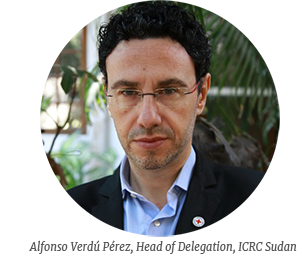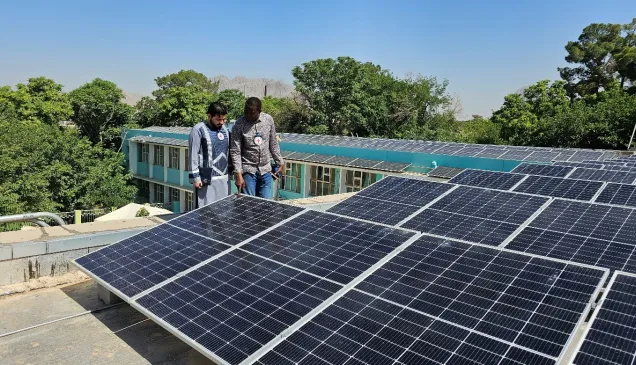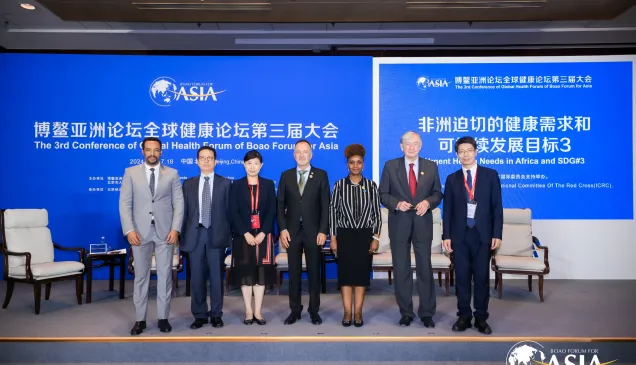“I see absolute destruction”: A Diary from Khartoum

Alfonso Verdú Pérez is the Head of Delegation for the ICRC in Sudan. He gives us an inside look at the situation on the ground and the challenges he and his team face daily.
I would use the words war, conflict and contradiction to describe the situation in Sudan. It's a contradiction when we consider the terms and the narrative that we can see in the international media about the ceasefires and the situation on the ground where basically every morning, every afternoon, every night, we are hearing - and even feeling it when the walls of our office are trembling - intense fighting.

This is an open conflict, and we are concerned about how to address the situation while also protecting our team.
There have been direct threats and attacks against humanitarian workers, including our partner the Sudanese Red Crescent. It is vital that humanitarian workers are allowed to carry out their work safely so we can respond to the needs.
One of the most pressing issues I have seen in Sudan is health. Heath is a matter of life and death.
Over 4,000 civilians have been wounded in Khartoum alone, and the medical staff has been severely impacted. Hospitals and clinics are running out of basic supplies, and more than 70% of medical staff have stopped working. Critical civilian infrastructure, such as power and water treatment plants, is also not functioning, leaving the population without access to essential services.
From my office window, I can see the absolute destruction on the streets and roads, a testament to the impact of the conflict on basic civilian infrastructure.
In addition to health needs, and damaged civilian infrastructure, I must highlight the plight of civilians still trapped in the conflict zone. Families, including children and elderly relatives, are stranded without food or water and are calling for help. The ICRC is doing everything it can to provide aid, but the situation is extremely challenging.
On Wednesday we donated medicines and supplies to a hospital in Khartoum together with our partner the Sudanese Red Crescent. We had to cross a frontline to reach it. Ongoing fighting makes it difficult to move teams and supplies around Khartoum.
We have also faced major challenges with communication. The phone network has made it impossible at times to reach colleagues to check if they are safe. It also makes it hard to coordinate a response. In the last week, we have managed to bring in medicines and additional staff, but it will be critical in the coming weeks to make sure we have systems in place to allow more support to arrive.
The challenges are immense, but we hope to deliver more supplies in the coming days to hospitals. Our goal is to scale up and provide the services that people in Sudan need and deserve.


